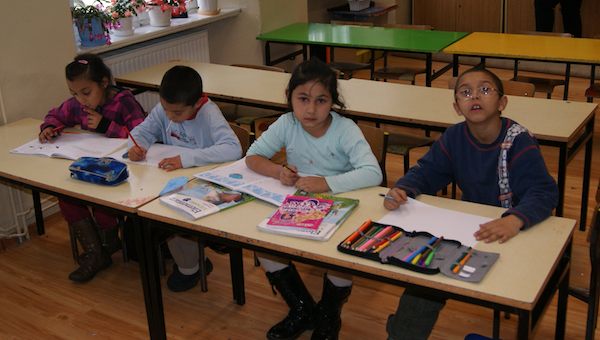Description of the situation
Despite expenditures since the beginning of the 90s increasing many activities in the field of Roma education, the level of education of most Polish Roma should be identified as still low.
In 2011 the Roma communities for question ofpossessing any education, 82% declared education "lower than average".
It is also still low attendance of Roma pupils, which oscillates on average 70% - and the average rating oscillating between mediocre and sufficient assessment.
Among the key barriers affecting the sustained low rate of education in the Roma community we should point out:
- lack of initial preparation which provides pre-school education - the insufficient knowledge of the Polish language, resulting in e.g. the misunderstanding of educator's commands - the early loss of Roma students in the education system, mainly girls,
- the migration of Roma families, causing the interruption of schooling, frequent lack of adopting in the new place of residence after returning from a foreign country,
- absence from school activities (due to the lack of educated obligation to send their child to school, family responsibilities understood in terms of communalism),
- lack of motivation and support from parents,
- deficiencies in preparing teachers to work with culturally different students ,
-
by the non-Roma peers,
-
poverty and poor social conditions hinder the students from preparing for classes.
A separate issue is the proportion of Roma children in special education. Among the main reasons for this phenomenon we should note:
- problems associated with treating Roma pupils in a way that respects their bilingualism and biculturalism, and often the lack of competence in the Polish language ,
- attractive special school environment - equipment of schools, well-prepared teachers to work with students with special educational needs - makes parents more likely to send their children to such schools, especially if older siblings were already taught there,
- insufficient knowledge of Roma parents about the procedure of placing Roma pupils in special schools, lack of parental awareness of the possibility to transfer your child at every level of education from a special school to a mainstream school - a chance to combine family for a child's education at a special school with the ability to take advantage of additional social benefits.
-
business schools - on the one hand, the possibility of obtaining the special schools additional appropriations for increased educational part of the general subsidy for the participation of Roma pupils, on the other hand, public schools - not having often employed teachers with additional training in special education - working with a pupil with special educational needs they perceive as difficult.

References:
- Ministerstwo Administracji i Cyfryzacji, Program integracji społeczności romskiej w Polsce na lata 2014-2020 [online], Polska [2014], available at: http://www.paszporty.lodzkie.eu/data/notices/program_integracji_spolecznosci_romskiej.pdf
- Miejski Ośrodek Kultury w Kowarach, "Cygańska Wyspa", Zajęcia w świetlicy[online], Polska, available at: : http://www.cyganskawyspa.pl/cms/page/4/
